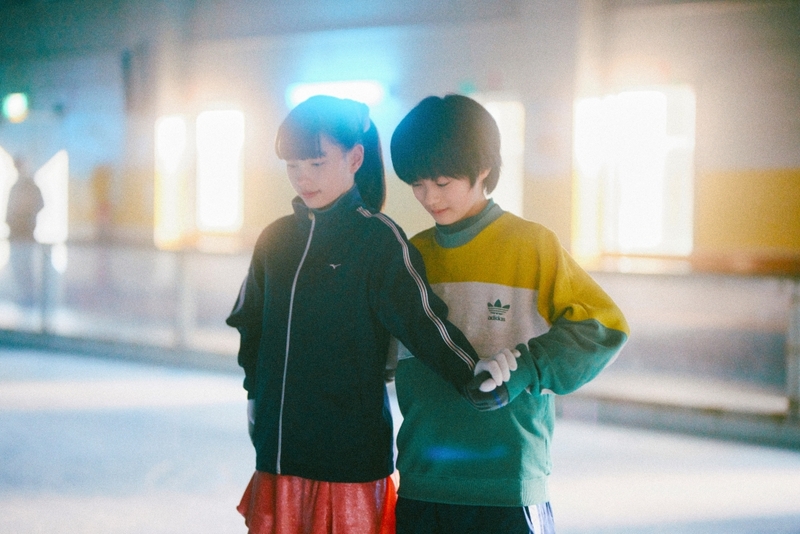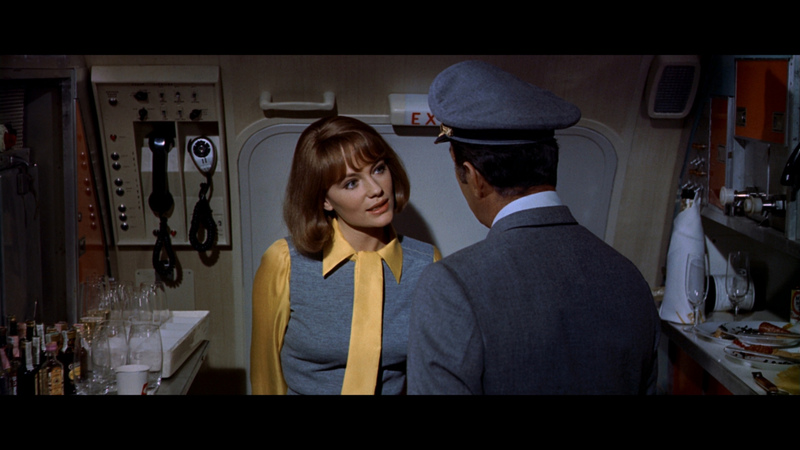
The Slow Bloom Under Snow
MOVIE REVIEW
My Sunshine (Boku no Ohisama)
–
Genre: Drama, Coming-of-Age, Sports
Year Released: 2024, 2025
Runtime: 1h 30m
Director(s): Hiroshi Okuyama
Writer(s): Hiroshi Okuyama
Cast: Keitatsu Koshiyama, Kiara Nakanishi, Sôsuke Ikematsu, Ryûya Wakaba
Where to Watch: in select theaters September 19, 2025
RAVING REVIEW: The film opens in winter and lingers there—not for elegance, but for the way snow transforms a place and how people move through it. That choice tells you a lot about how MY SUNSHINE operates. Hiroshi Okuyama favors small gestures and unforced moments, letting the season become a quiet metronome for emotional time. The story tracks a boy written off as the worst on his hockey team, the girl whose figure skating seems to promise escape, and a coach who recognizes something familiar (and faintly wounded) in both of them. What starts as mentorship gradually reshapes itself into a delicate triangle—supportive, protective, and then, inevitably, strained.
Okuyama’s approach is built on restraint. Dialogue is sparse, explanations are rare, and what’s most important often arrives in the way people avoid eye contact or the way a hand hangs in the space between. That minimalism is not evasive; it’s a deliberate claim that childhood (and the first moments of something more) lives in pauses and half-finished sentences. Crucially, the film resists escalation. There’s no drill-sergeant coach, no rousing montage; improvement is incremental. Even victories feel temporary, like the grooves in the ice that the next hour will erase.
The trio at the center is balanced. Keitatsu Koshiyama’s Takuya is tentative without seeming inert—a kid who feels smaller than the rink he stands on, who gradually occupies more space as he’s permitted to try. Kiara Nakanishi’s Sakura reads as both driven and skeptical, wary of how adults manage her talent and image. Sôsuke Ikematsu, as coach Arakawa, tackles the film’s trickiest role: he’s a steadying force who doesn’t demand, a protective figure who radiates a quiet loneliness of his own. The film allows his warmth to coexist with his resignation, suggesting that care can be both a shelter and a burden.
Visually, Okuyama’s cinematography captures winter with sensitivity—fluorescent rinks, and the white hush that turns even a parking lot into a stage. The camera rarely insists; it observes. When it glides, it glides with the skaters. When it stands still, the stillness invites you to notice small shifts: breath in the air, the first hint of a smile after a stumble. This is the kind of filmmaking that trusts the audience to do a little work, to fill the negative space with feeling. It also trusts children to be interesting without performance tricks or precocious speeches. The nonprofessional energy in the leads keeps the acting from curdling into “movie kid” behavior.
Underneath the softness, there’s steel. The film’s emotional arc edges toward the realities that adulthood pushes into every childhood: unspoken rules, reputational pressures, and the ways institutions narrow what’s possible. The narrative never shouts its themes, but you can sense the underlying force of a conservative status quo, especially as the bond among the trio invites projection from those around them. That context matters, and the movie acknowledges it without turning into a social-issue tract. It’s a story about how care gets negotiated—who is allowed to give it, receive it, and define its shape.
Performance notes: Koshiyama’s quiet evolution is the heartbeat—you can track confidence by the way he stands at center ice. Nakanishi gives Sakura a grounded interiority; the film never reduces her to a vehicle for the boy’s growth, and her doubts necessarily complicate the chemistry between the duo. Ikematsu is superb at communicating a life offscreen: you sense the apartment, the daily rituals, the compromises that came before the opening frame. Together, the three form an interlocking set of needs—recognition, safety, and possibility—that the film gently yet firmly tests.
On representation and resonance: the film’s festival life included recognition in categories that speak to LGBTQIA2S+ interest, and it’s easy to see why. Without labels or speeches, MY SUNSHINE watches how closeness itself becomes suspect in certain environments, how a kind of ambient homophobia can reshape futures without anyone publicly owning the harm. The movie articulates that truth with a whisper, which may frustrate some, but the whisper is intentional: we’re meant to feel how a single decision, or even a single look, can re-route a life.
In the end, MY SUNSHINE earns its emotional weight. It’s modest in scale, attentive in craft, and confident that small acts—an offered hand, a patient correction, a coach choosing gentleness—can carry cinematic force. It may not break your heart; it might quietly bruise it. That’s enough. It’s a wintry, tender piece that leaves a clean trace on the ice before the next day covers it, and I’m comfortable placing it on the positive side of my ledger—steady, thoughtful, and memorable for how it listens to silence.
Please visit https://linktr.ee/overlyhonestr for more reviews.
You can follow me on Letterboxd, Instagram, Twitter, and YouTube. My social media accounts can also be found on most platforms by searching for 'Overly Honest Reviews'.
I’m always happy to hear from my readers; please don't hesitate to say hello or send me any questions about movies.
[photo courtesy of FILM MOVEMENT]
DISCLAIMER:
At Overly Honest Movie Reviews, we value honesty and transparency. Occasionally, we receive complimentary items for review, including DVDs, Blu-rays, CDs, Vinyl Records, Books, and more. We assure you that these arrangements do not influence our reviews, as we are committed to providing unbiased and sincere evaluations. We aim to help you make informed entertainment choices regardless of our relationship with distributors or producers.
Amazon Affiliate Links:
Additionally, this site contains Amazon affiliate links. If you purchase through these links, we may receive a commission. This affiliate arrangement does not affect our commitment to honest reviews and helps support our site. We appreciate your trust and support in navigating these links.



Average Rating